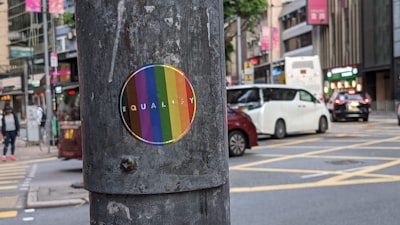Summary
On July 2, 2025, the Hong Kong government announced a proposed bill to provide limited legal recognition to same-sex couples whose marriages were performed abroad. This initiative, prompted by a 2023 court order, would allow such couples to register for certain rights mainly tied to healthcare—such as hospital visits, medical decisions, and organ donation—as well as matters relating to death. Notably, the legislation excludes important domains like housing, inheritance, and taxation, which have formed the backbone of earlier legal battles over LGBTQ rights in Hong Kong. The move comes in a shifted political climate, with only pro-Beijing lawmakers in office and strong resistance to fully recognizing same-sex partnerships.
Analysis
The government's proposal is both a response to judicial mandate and a reflection of the current political environment. The 2023 court ruling forced the government to offer an alternative, non-marriage-based framework for recognizing same-sex couples, but crucially stopped short of challenging the traditional heterosexual definition of marriage enshrined in law. In focusing only on a narrow slice of rights, policymakers appear keen to comply with the minimum legal requirement while avoiding broader societal controversy or pushback from the pro-Beijing bloc. This piecemeal approach is emblematic of a broader tension often found in semi-authoritarian or transitional political settings: incremental concessions to minority rights, shaped and constrained by powerful conservative or ideological interests.
The lack of rights on vital issues like inheritance or housing perpetuates a second-class status for same-sex couples. Moreover, confining eligibility to couples married overseas exposes the enduring gap between local policy and universal human rights standards, and raises the question of whether the new registration mechanism is more symbolic than substantive.
Discussion
Why does this matter? The Hong Kong experience highlights both the slow-moving progress and the recurring limitations typical in the struggle for LGBTQ equality in many societies. Even when courts side with minorities, political realities often blunt the force of legal mandates, resulting in cautious, sometimes begrudging, reforms. Hong Kong’s case is particularly telling given the city’s unique political structure: the ousting of pro-democracy lawmakers has diminished dissenting voices, reinforcing a status quo oriented toward Beijing’s values and social conservatism.
There are broader parallels here to other regions—Japan, for instance, continues to resist same-sex marriage, offering only limited partnership rights in select jurisdictions. The question arises: Do small steps towards equality pave the way for broader change, or do they entrench inequality by allowing governments to point to token progress while avoiding real reform?
Ultimately, the proposed framework opens a sliver of recognition for same-sex couples but leaves many pressing needs unmet. Will Hong Kong's LGBTQ community be able to leverage this wedge into fuller rights? Or does this move merely delay a more meaningful reckoning with equality under the law? As the bill faces legislative scrutiny, these are questions worth watching—for Hong Kong, and for any society grappling with the pace and scope of social change.

Comments
No comments yet. Be the first to comment!